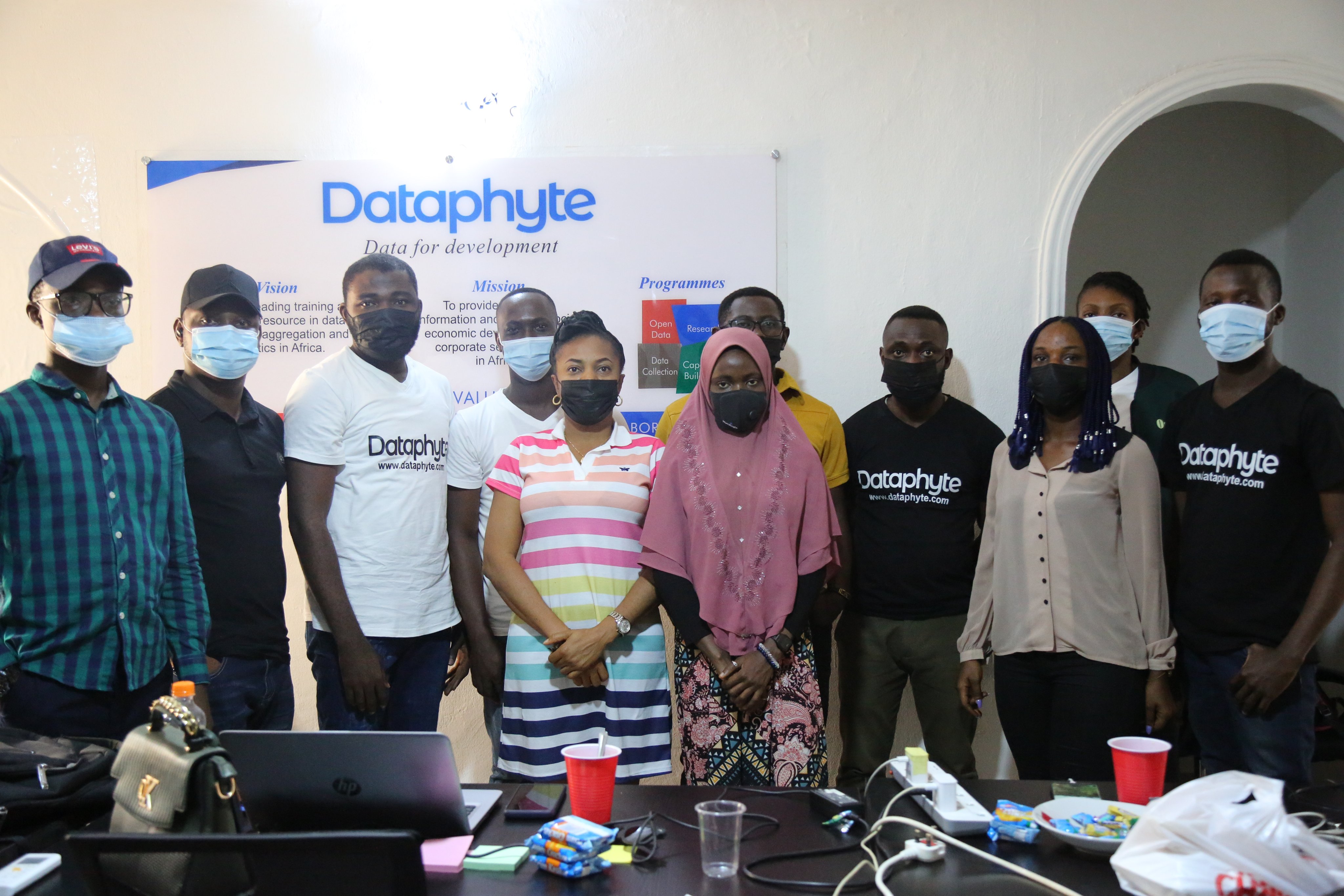Abuja Open Data Day - Event Report
- Date
- Saturday 6 March 2021
- Time
- 9:00 (WAT)
- Location
- Abuja, Nigeria (Europe, Middle East & Africa)
- Organisers
- Dataphyte
On Saturday 6th March 2021, the eleventh Open Data Day took place with people around the world organising hundreds of events to celebrate, promote and spread the use of open data. Thanks to generous support from key funders, the Open Knowledge Foundation was able to support the running of more than 60 of these events via our mini-grants scheme.
This event received an Open Knowledge Foundation mini-grant thanks to support from the Open Contracting Partnership.

How did your event celebrate open data?
We celebrated Open Data Day by hosting an interactive data session on using open government data to investigate COVID-19 spending in Nigeria.
Eighteen participants across six organizations interested in using open government data to investigate COVID-19 spending registered and attended the data party.
Since the whole activity of the day was conceived to be mainly interactive, at the point of registration, provision was made for participants to indicate what they want to learn, share and open data is of interest to them. The feedback from this exercise was used to place participants into groups during the story ideation session.
The Abuja Open Data Day event focused on five main themes.
• Introduction to open data
• Open data as a tool for advocacy, transparency and accountability
• Where to find open data on COVID-19 spending in Nigeria
• The marriage between compelling and accountability COVID-19 stories
Journalism in the age of open dataIn general, the event outlined the process of spotting red flags in COVID-19 dataset and reporting the red flags. It presented the various sources of COVID-19 spending datasets in Nigerian. Also, the event presented the various strategies of interrogating COVID-19 data for procurement fraud.
Yusuf explained Red flags in procurement: suspicious repeat line items, ownership of contracting companies and tax history, overpriced and frivolous projects pic.twitter.com/09D6ovr5f7
— Dataphyte (@Dataphyte) March 6, 2021
Lessons learned from your event
Participants of the Abuja Open Data Day agreed to the following:
- To not only be problem pointers or corruption pointers but also project solutions that can be used to amend the situation
- Present the local, national and international perspective when birthing a COVID-19 story so as to showcase international best practices and policies as solutions.
- To think of multimedia as an audience engagement strategy while delivering investigative stories especially on COVID-19.
- To increase public procurement transparency and government accountability by carrying out a deeper analysis of budget, procurement, and revenue data.
- Increase the advocacy for open government data
Why do you love Open Data Day?
I love open data day because it provides an opportunity for an interactive and skill share session on the use of freely available data for the purpose of demanding transparency and accountability of public institutions and processes.
